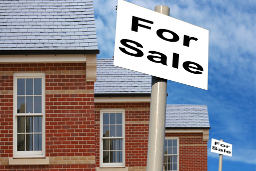New LVR Restrictions Announced
In the Reserve Bank's Financial Stabilty Report, May 2015 a new set of loan-to-value ration (LVR) restrictions were announced
 The LVR ratio is the maximum amount that the Reseve Bank will allow banks can lend on the value of a property.
The LVR ratio is the maximum amount that the Reseve Bank will allow banks can lend on the value of a property.
It is important because the Reseve Bank is the boss bank. The retail banks have to do what the RB tells them as it can impose very expensive penalties for breaches. The moves are intended to slow the rate of price increases in the Auckland housing market. They may have a marginal impact and the Reserve Bank can now claim it is "doing something" and the Government will claim some of the credit if it works.
It is proposed that from 1 October 2015
- All investor property loans within the Auckland region will be capped at a 70% LVR, so buyers will need a 30% deposit.
- For owner-occupied housing loans within Auckland, the share of high-LVR lending will remain capped at 10%.
- Outside of Auckland, where house price growth has been more subdued, the share of high-LVR lending will be lifted from 10% to 15%, so banks can do more low deposit loans outside Auckland.
There will be further technical details released later, things like the definition of where Auckland starts and stops for the purposes of this.
The RBNZ estimates that the new restrictions could reduce Auckland house price growth by 2-4%, which would work out to around 1-2% on the national average. RBNZ data shows that only around 2% of property investor loans are originated at LVRs above 80%, so a 70% limit on property investor loans is actually not that tight. Meanwhile, the RBNZ has actually loosened LVR restrictions in the rest of the country, although that may not have much impact because the share of high-LVR lending in those regions is already running well below the existing 10% limit.
Westpac's Michael Gordon has stated that "It's likely that the aim of announcing this so far ahead of the implementation date was to create an immediate chilling effect on the Auckland property market. Whether that proves to be the case over the next four and a half months is unclear. When the first LVR limits were announced in 2013, house prices surged as buyers, particularly first -time buyers, rushed for the door before it closed on them. However, investors, who are more focused on capital gains, won't face the same incentive."
Westpac are still forecasting 10% nationwide house price inflation this year, and 4.5% next year. But most of that is in Auckland. It really is a different market, it's our only truly "global" city and lots of people want to live there. Some of the growth will flow through to Tauranga and Hamilton, sell in Auckland and you can get an equally nice house and plenty of change further south, but what do you do for a job?
Most of us have seen it all before and we'll see it again. Every few years there's a property boom, those who already own property see the benefits in increased house prices, those who don't own properties end up paying higher rents. It might not be fair or desirable but it is pretty much inevitable.
But just like all the previous booms sooner or later prices will stop rising and then quite likely fall, quite possibly sharply. If you're a rental property investor be prepared. Run some worst case scenarios and see if you'll be in a position to ride them out. If you're relying on 10% per annum price increases to keep funding the mortgages you might be disappointed.
If you own your own home, try and resist the temptation to increase your mortgage and spend it on consumable items. All the banks are offering more money to existing borrowers in the form of increased credit card limits and OD facilties. Great if you need more money to finance a profitable business, but potentially dangerous, beware.
- Last updated on .